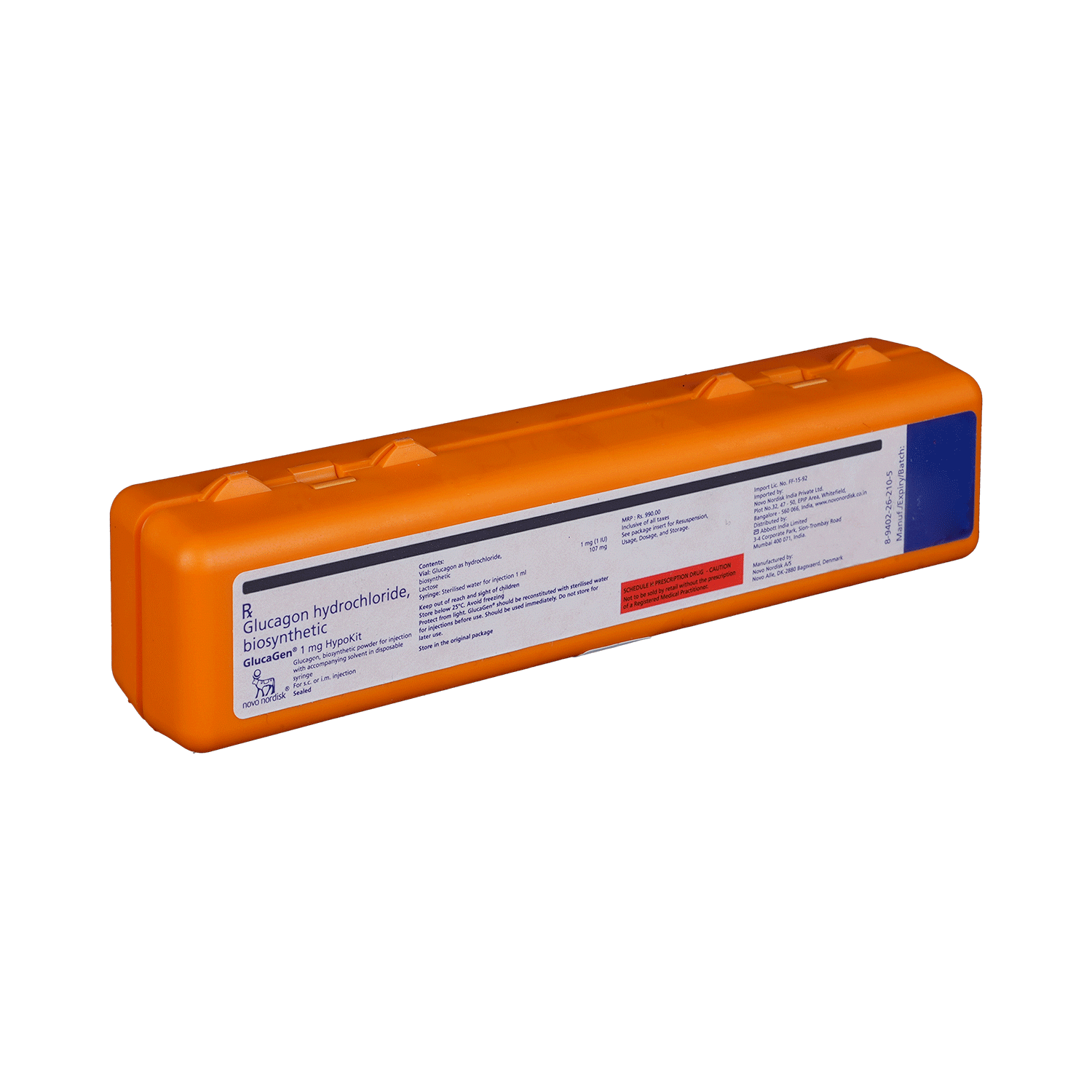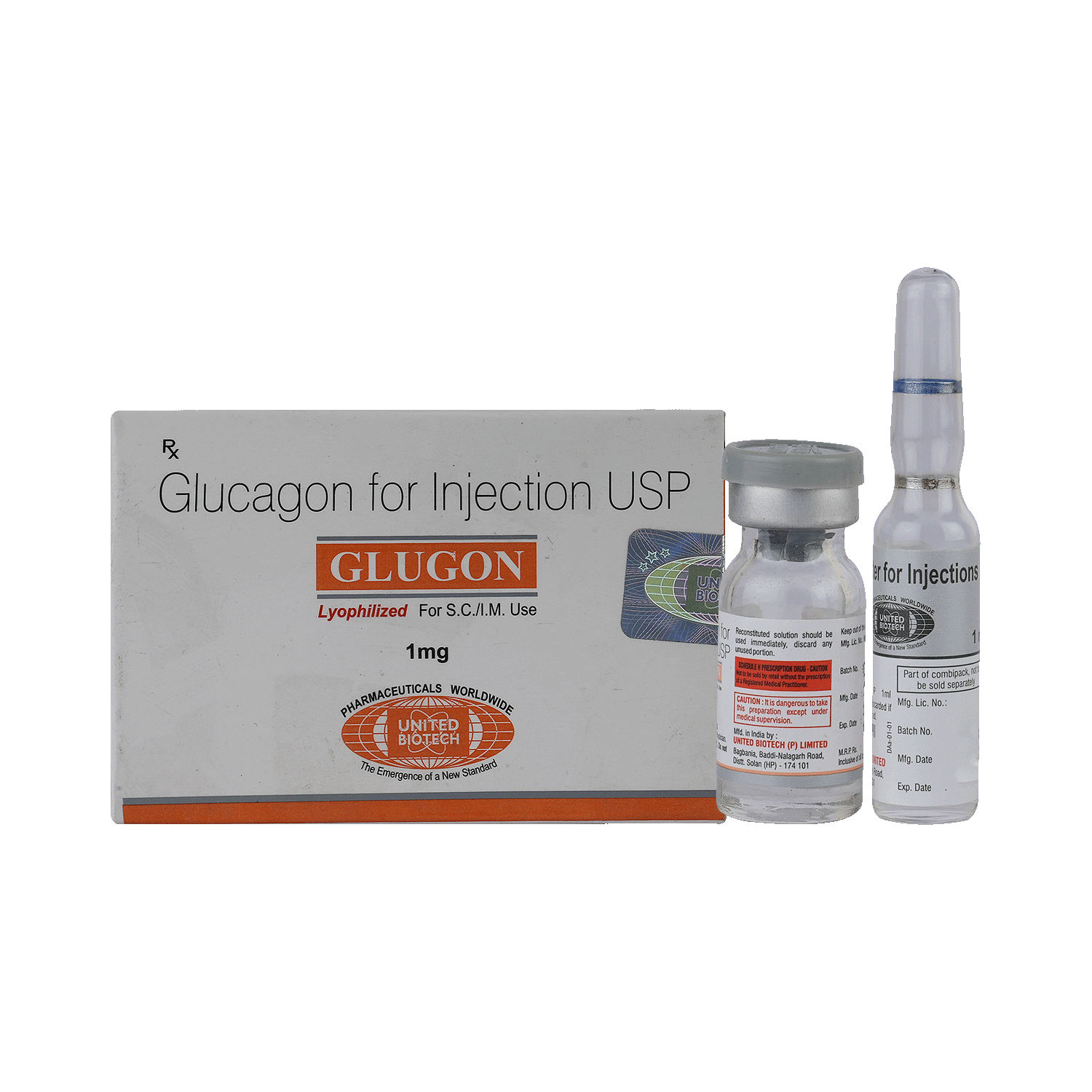
Glucagen 1mg Injection
Salt Composition
Glucagon (1mg)
Key Information
Short Description
Glucagen 1mg Injection is used for emergency treatment of severe hypoglycemia in people with diabetes who are unconscious and unable to take sugar by mouth.
Dosage Form
Injection
Introduction
Glucagen 1mg Injection may be administered by a healthcare professional or a trained caregiver. It is crucial for patients and their family members to recognize symptoms of severe hypoglycemia, such as irritability, sweating, fast heart rate, and feeling anxious or shaky, and know how to administer this medicine. The injection raises blood sugar levels, and once the patient regains consciousness, they should consume a high sugar snack to prevent further drops in blood sugar. Emergency medical assistance is necessary after using this medicine, and a complete medical evaluation is advised to determine the cause of severe hypoglycemia and prevent recurrence. The most common side effect is nausea. Consult a doctor if it persists. Glucagen 1mg Injection may not be effective if the patient has been fasting for a long time or if hypoglycemia is caused by excessive alcohol consumption.
Directions for Use
Your doctor or nurse will give you this medicine. Kindly do not self administer.
How it works
Glucagen 1mg Injection is a natural hormone that helps the liver convert glycogen into glucose. It also relaxes the tone and motility of the smooth muscle in the gastrointestinal tract during barium studies.
Quick Tips
The injection is given either under the skin or into a muscle. Ensure that both you and your family members know how to use Glucagen 1mg Injection in case your blood sugar becomes severely low. It may take approximately 10 minutes to have an effect. Call your doctor immediately if the symptoms do not improve within 10 minutes of dose intake. Take high sugar snacks such as sweets and fruit juice as soon as you are able to swallow. Avoid driving and any activity requiring mental focus until blood sugar level gets normal. Inform your doctor every time you use this medicine as your dose may need to be adjusted.
Related Medicines




